White Heat (1949)
Dir. Raoul Walsh
Writ. Ivan Goff and Ben Roberts, from the story by Virginia Kellogg
w/ James Cagney, Virginia Mayo, Edmond O'Brien, and Margaret Wycherly
"We are increasingly working in an environment where producers are...not supporting the crew and that filters through. I saw a documentary the other day about James Cagney who founded the Screen Actors Guild. He said he and his friends set it up because they were being asked to work 12, and sometimes 13, hours a day. And I was going: 'You lucky bastard' because I've been doing 15 to 16 hours a day. And it's all down to money and producers, and there are very few truly creative ones."
--Ewan McGregor on modern American filmmaking attitudes, Caledonia, Vol 3, No 8, August 2001.
Crime boss, Mama's boy, and epileptic Cody Jarrett takes no chances in this gangster's tale of train robbery, double-crossing, and revenge. His eyes are on his men, none of whom he trusts, and his mother's eyes are on his moll, who really can't be trusted. When he winds up in prison, he begins a grassroots plan of escape and reckoning masterminded by and carried out thanks to his tremendous clout while on the inside because nobody messes with Mama's little boy.
When an actor invests as much of himself in a role as James Cagney does in Cody, it would be remiss not to appreciate such energy. The SAG founder more than filled out a role with some of the most threadbare dialogue, bringing power that very few actors of the time could have dredged up. Even high-billing stars with predilections for for over-the-top performances pulled from the gut could have easily fallen short of Cagney's mad-eyed interpretation and execution.
The cohesive intercast relationships work like epoxy. To be sure, the script's riddled with stock mobster lines, just in case anyone wasn't aware of the genre; but, the action -- headed by Cagney and Margaret Wycherly as the formidable Ma Jarrett -- refortifies the traditional belief that what an actor does speaks volumes more than what an actor says. Both are completely believable as they conspire to rise to "the top of the world," and tracking their progress proves scintillating.
Innovative fighting sequences and a fresh approach to suspense make for a refreshing film from Raoul Walsh, who brought Hollywood its first outdoor talkie, In Old Arizona (1929) during which the director lost an eye. Watching the interplay in White Heat, it's not hard to imagine a cast spurred to greater heights by a director wearing an eye patch, as if a vitally macabre pirate ship tone ruled the set. Cutting edge for 1949, the production values ring brassy, entertaining, but no sacrifices get made to quality, which places it among old Hollywood's finest reels.
If more crime dramas emphasized character and situation over effects, it would be a different movie-going workd out there; for, unlike most, this classic tends to get better with each viewing.
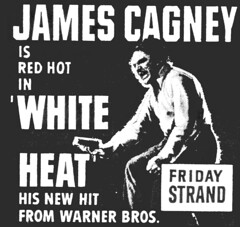

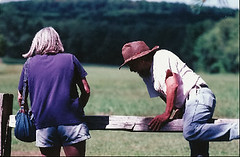
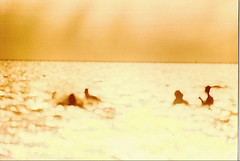
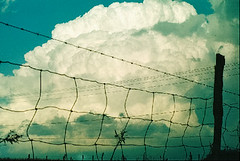
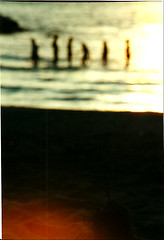

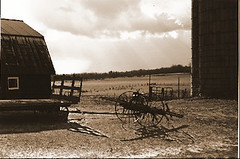
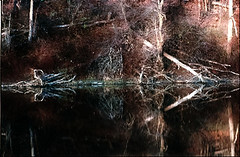






0 Comments:
Post a Comment
<< Home